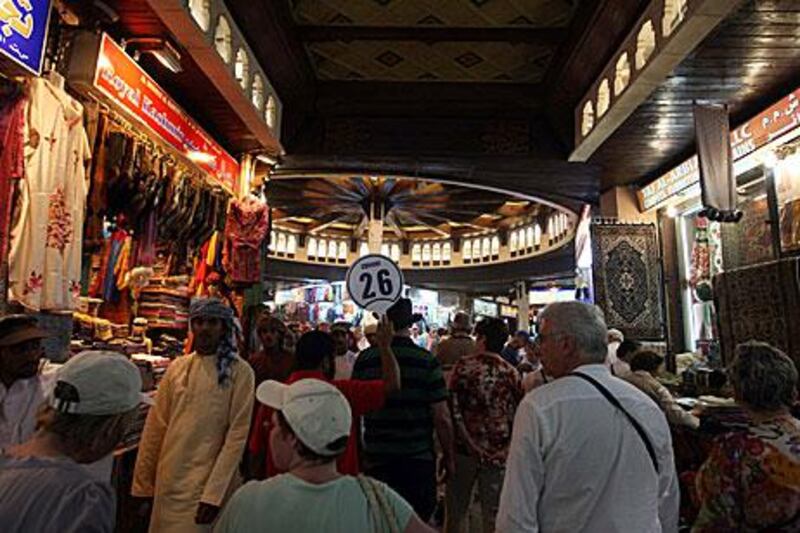Oman is striving to attract sophisticated tourists rather than simple beach seekers as part of a plan to help it preserve its culture and tradition, the country's ministry of tourism says.
"We are not looking for mass tourism," said Salim al Mamari, the director general of promotion at the Oman ministry of tourism.
"We are not into numbers. We are into the quality of the tourist. Oman is a niche market. We are trying to tackle a certain segment and tourists who will be able to help us to keep and maintain Oman as it is for generations to come."
Last year, Oman received 1.7 million tourists. Mr al Mamari said the country was expecting growth of about 7 per cent this year. Analysts said growth in the number of tourists travelling to Oman slowed amid the economic downturn.
"A huge budget has been designated for tourism development over the next five or six years," Mr al Mamari said.
Many tourism developments are taking place in the country, with more and more international hotel brands entering the country.
Among the hotels under development in Oman are Moevenpick and Club Med properties but the planned Blue City, which is supposed to have several hotels, has been hit by the property downturn.
The country's hotel supply is set to increase to 17,000 rooms from 10,500 rooms by 2017, Mr al Mamari said.
"We are developing many forts and castles into museums," he said. "Also, we are converting old villages, which are around 3,000 years old, into hotel accommodation.
"We are also training Omanis to be a part of this development, as tour guides, official companies to run the businesses and so on."
Mr al Mamari added Oman was also focusing on developing caving tourism. "We are more into green and responsible tourism."
The country is improving its airport infrastructure. Muscat and Salalah airports are being expanded and another five local airports are being built.
Europe is one of Oman's key markets and the tourism board is also planning to set up an office in China, Mr al Mamari said. The UAE is Oman's main market for tourists from the GCC.
"The Omani government is likely to maintain its orientation towards high-quality tourism, with the intention of attracting visitors to its heritage, history and archaeology rather than its sea, sun and sand, although the latter attractions are also stimulating inbound tourism flows to the sultanate," analysts at Euromonitor International said.
"While there was previously a rather cautious approach to tourism in the sultanate, the pace of change is now picking up. The duration of a transit visa has, for example, been extended from 24 to 72 hours.
"Visas are no longer required for GCC citizens and expatriates residing in the Gulf will be granted a two-week tourist entry visa on arrival."






